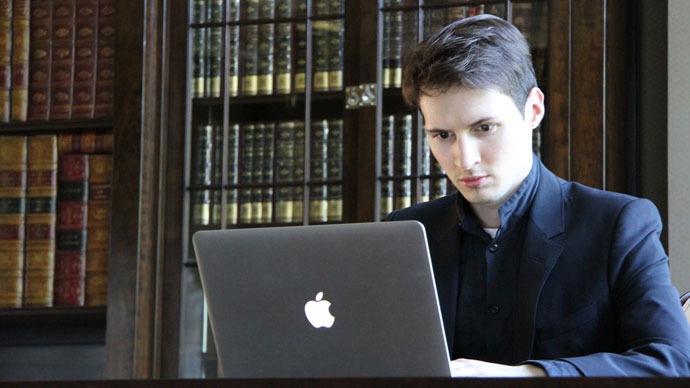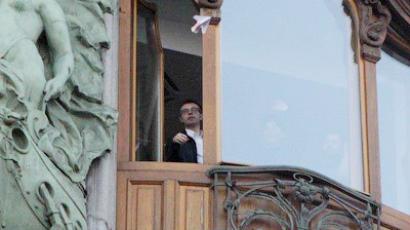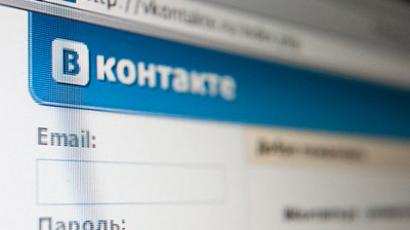Russia’s ‘Mark Zuckerberg’ caught in web of criminal accusations, police searches, and big money deals

In the past fortnight, Pavel Durov, the 28-year-old founder of Russia’s biggest social network, has been accused of running over a policeman, had his home and office searched, whilst his partners sold a large share of the firm – despite his wishes.
On April 9 several Russian news channels simultaneously reported
that four days earlier, a man in a white Mercedes tried to outrun a
police car, hit a policeman, and then escaped arrest as the
passenger of the car was detained.
All of the stories connected the white car of Durov, alleging he
was the driver, although it appears that the only vehicle meeting
such a description at Vkontakte is owned by another senior
employee.
The story was accompanied by an edited video, in which a white
Mercedes moves several times, on a packed street, while the driver
talks to policemen standing by his window. There seems to be no
injury to the driver, nor is anyone detained.
Durov’s representatives said that the multi-millionaire does not
even drive, using the metro instead. Police say that an
investigation has been opened, but have declined to name a
suspect.
On Tuesday, the story was given fresh legs, when police appeared
at Durov’s flat and office.
“Around twenty people dressed in leather overcoats – who look
like Bolshevik commissars – appeared all of a sudden. Simply walked
around the different offices, didn’t seem to be doing
anything,” is how Nikolay Durov, Pavel’s brother described the
search on his Vkontakte profile.
The officers confiscated the complex’s CCTV footage before
leaving.
“This appears more like a media campaign. I did not have
anything to do with any hit-and-run,” Durov told Vedomosti
newspaper.
On Wednesday afternoon, Vkontakte confirmed that 48 percent of the
network – was purchased off Durov’s co-founders United Capital
Partners (UCP) by an investment fund headed by Ilya
Scherbovich, a senior figure at Rosneft, Russia’s state-owned oil
company.
The sum of the deal was not disclosed. But the website – which is
visited by 40 million daily and according to Amazon’s Alexa
Internet is the 25th most popular site in the world – was estimated
to be worth between $2-$3.5 bln by market analysts.

Vkontakte was founded in 2006 and possesses an interface similar to Facebook, though offers Russian speakers unlimited access to videos and music freely uploaded by other users – to the ire of international organizations.
Durov himself owns 12 percent of the company, and is entrusted with another 40 percent owned by Alisher Usmanov, the multi-billionaire tycoon, who has shares in Arsenal among other ventures. He had been vehemently opposed to previous outside attempts to buy into his business.
“
There are reasons to believe outside forces were putting pressure on Durov with these police-related incidents, ” a source inside the company told Gazeta.ru newspaper.
While Russian media outlets have not openly commented on the implications behind the murky chain of events, some bloggers have speculated that the police campaign was intended to nudge the current owners towards the sale.
Several have worried that Vkontakte, which has been a major tool for organizing Russia’s opposition, will now work more closely with the government’s security services. Vkontakte itself has denied that its confidentiality terms or interface will be changed after the sale.
Whatever happens next, Durov – who last year celebrated a city holiday by flinging banknotes from the window of his office to the crowd below – will remain a polarizing figure. While some hail the self-proclaimed libertarian and see him as a progressive entrepreneur, others have previously accused him of allowing his website to be used for covert political smear campaigns.
But whatever happens next, Durov himself remains undaunted.
“To change anything around this company, you have to get rid
of me. As I still have the majority [12 percent of own shares and
40 percent of Usmanov’s] this will be impossible,” he said in a
comment on his social network page.














